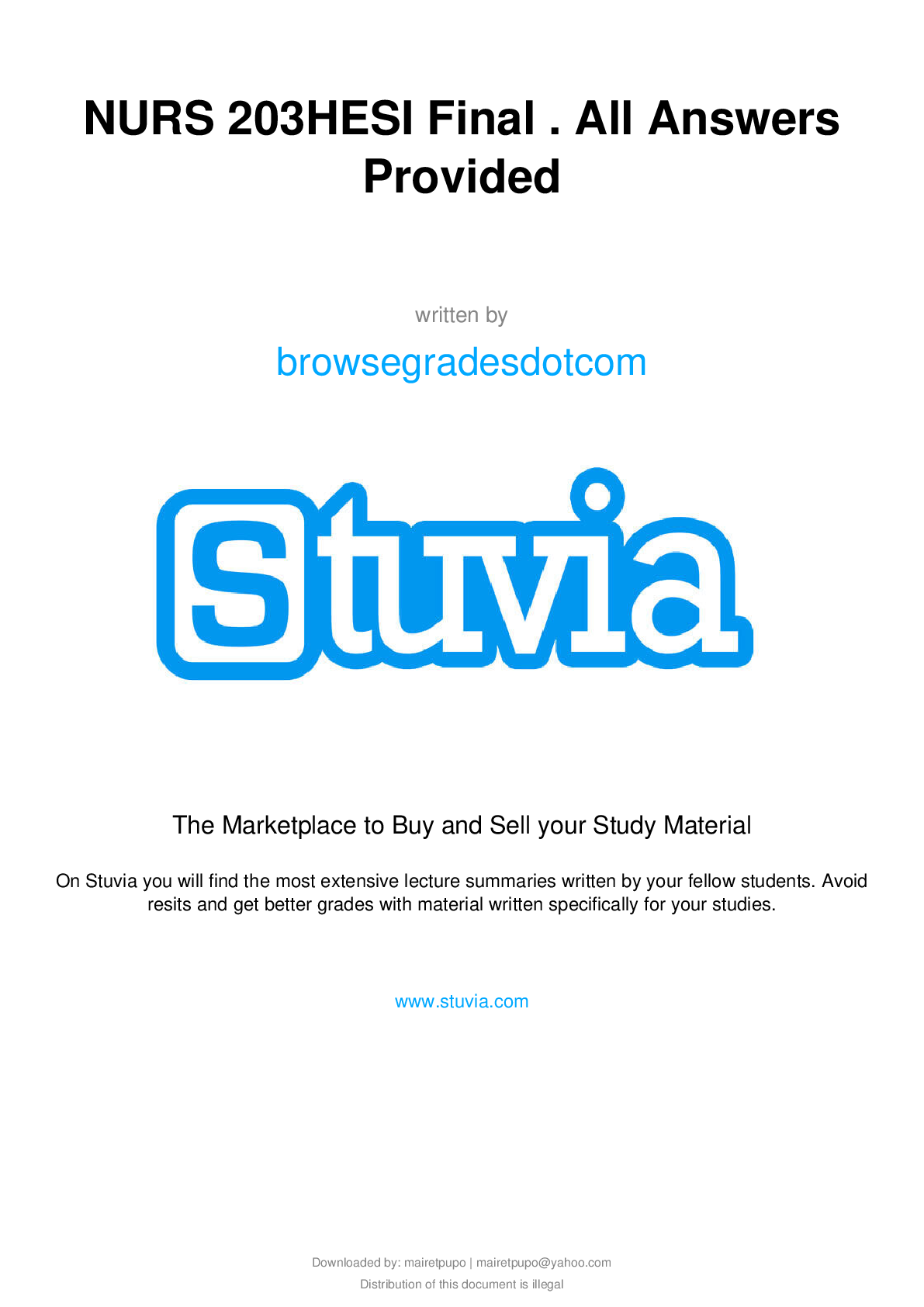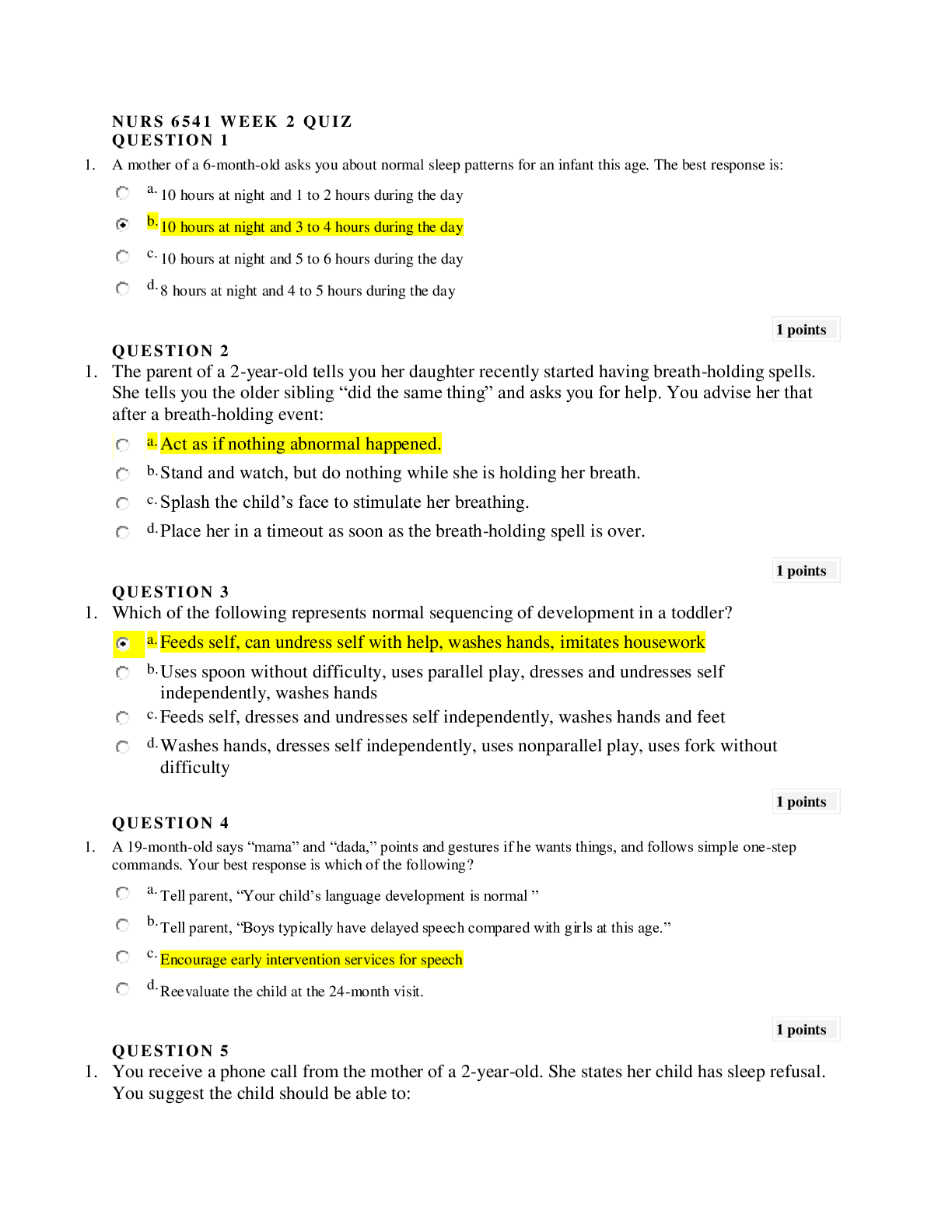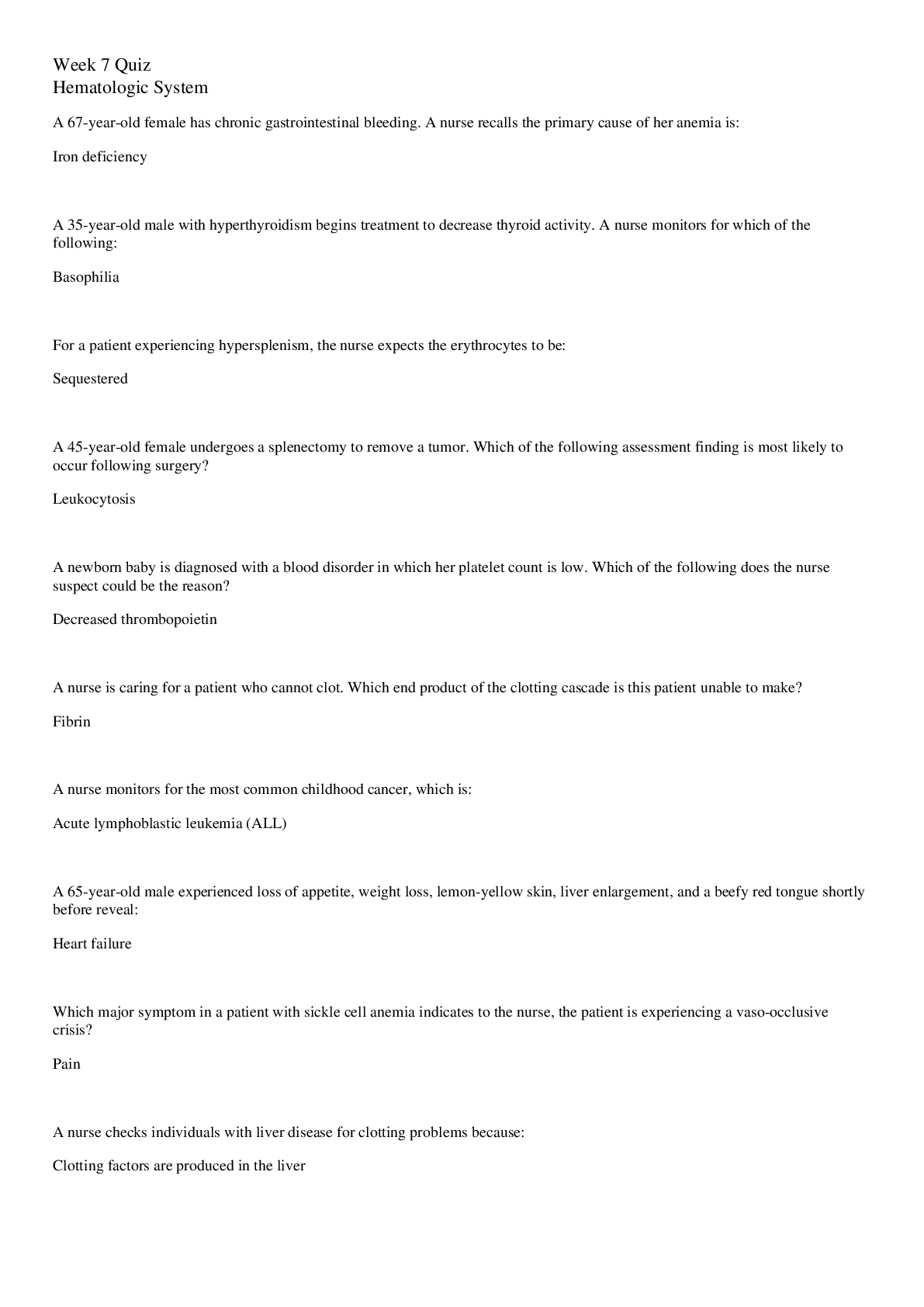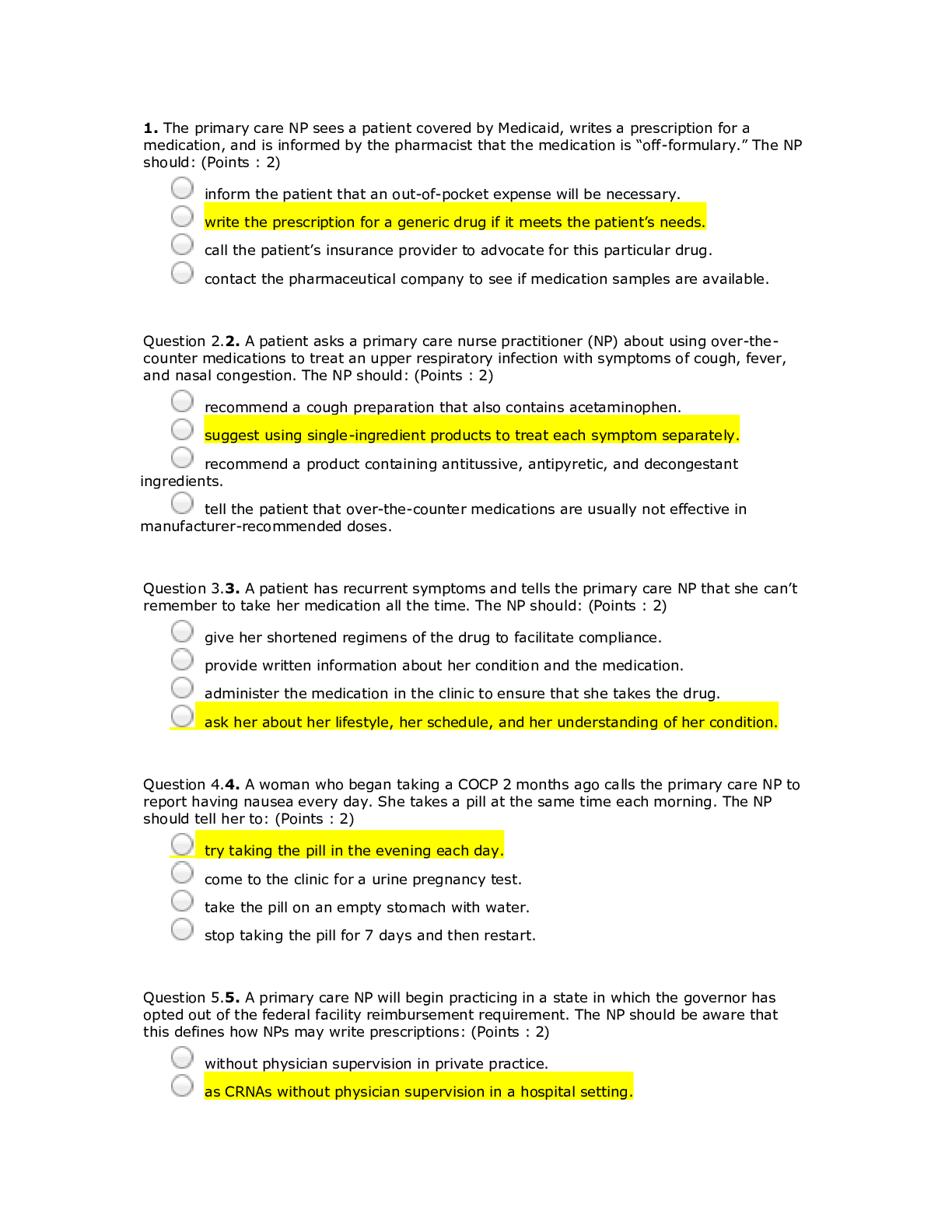*NURSING > QUESTIONS & ANSWERS > Week 7 physical assessment NR509 quiz LATEST FOR 2021/2022 (All)
Week 7 physical assessment NR509 quiz LATEST FOR 2021/2022
Document Content and Description Below
Question1.Question :A 65-year-old patient remarks that she just can’t believe that her breasts sag so much. She states it must be from lack of exercise. What explanation should the nurse offer her?S... tudent Answer:After menopause, only women with large breasts experience sagging. After menopause, sagging is usually due to decreased muscle mass within the breast. After menopause, a diet that is high in protein will help maintain muscle mass, which keeps the breasts from sagging. After menopause, the glandular and fat tissue atrophies, causingbreast size and elasticity to diminish, resulting in breasts that sag. Instructor Explanation:After menopause, the glandular tissue atrophies and is replaced with connective tissue. The fat envelope atrophies also, beginning in the middle years and becoming marked in the eighth and ninth decades. These changes decrease breast size and elasticity, so the breasts droop and sag, looking flattened and flabby.Points Received:2 of 2 Comments:Question2.Question :During a physical examination, a 45-year-old woman states that shehas had a crusty, itchy rash on her breast for about 2 weeks. In trying to find the cause of the rash, which of these would be important for the nurse to determine?Student Answer:Is the rash raised and red? Does it appear to be cyclic? Where did it first appear—on the nipple, the areola, or the surrounding skin? What was she doing when she first noticed the rash, and do her actions make it worse? Instructor Explanation:It is important for the nurse to determine where the rash first appeared. Paget’s disease starts with a small crust on the nipple apex and then spreadsto the areola. Eczema or other dermatitis rarely starts at nipple unless it results from breastfeeding. It usually starts on the areola or surrounding skin and then spreads to the nipple. See Table 17-6.Points Received:2 of 2 Comments:Question3.Question :The nurse is performing a breast examination. Which of these statements best describes the correct procedure to use when screening for nipple and skin retraction during a breast examination? Have the womanStudent Answer:bend over and touch her toes. lie down on her left side and notice any retraction. shift from a supine position to a standing position; notice any lag or retraction. slowly lift her arms above her head and note any retraction or lag in movement. Instructor Explanation:Direct the woman to change position while checking the breasts for skin retraction signs. First ask her to lift her arms slowly over her head. Both breasts should move up symmetrically. Retraction signs are due to fibrosis in the breast tissue, usually caused by growing neoplasms. The nurse shouldnotice if there is a lag in movement of one b [Show More]
Last updated: 2 years ago
Preview 1 out of 14 pages
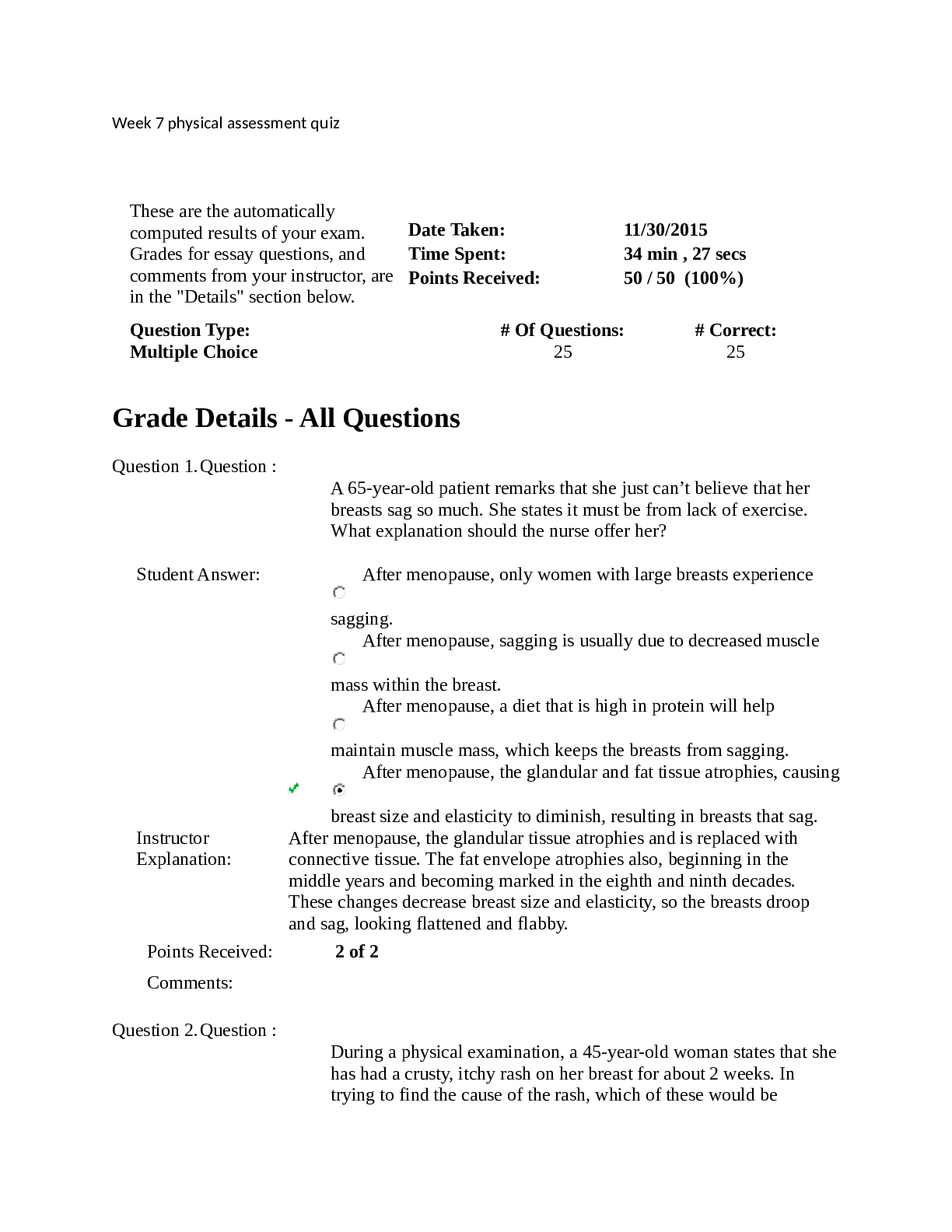
Buy this document to get the full access instantly
Instant Download Access after purchase
Buy NowInstant download
We Accept:

Reviews( 0 )
$9.50
Can't find what you want? Try our AI powered Search
Document information
Connected school, study & course
About the document
Uploaded On
Jul 28, 2021
Number of pages
14
Written in
Additional information
This document has been written for:
Uploaded
Jul 28, 2021
Downloads
0
Views
82

